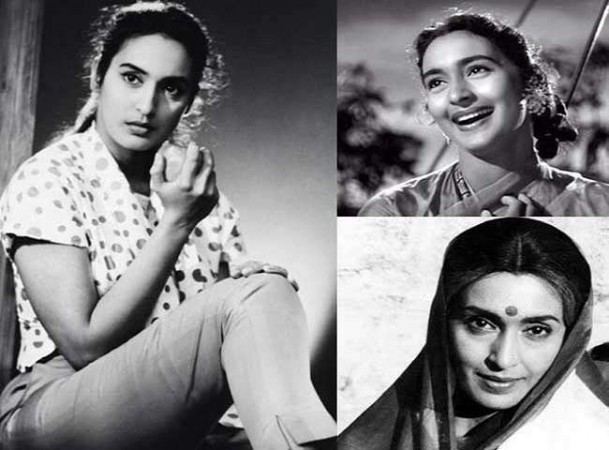
One of the greatest actresses in Indian film history is Nutan, the personification of talent and grace. She left an imprint on Bollywood with a career spanning more than four decades, and she continues to be an inspiration to aspiring actors today. This article explores Nutan's career in Bollywood, her personal life, tragic events, accomplishments, and some of her classic works that have withstood the test of time.
She came from a well-known film family and was given the name Nutan Samarth when she was born on June 4, 1936, in Mumbai, India. Her father, Kumarsen Samarth, was a film director, and her mother, Shobhna Samarth, was a well-known actress. With the help and encouragement of her family, Nutan made her screen debut in the 1950 movie "Hamari Beti" when she was just 14 years old.
On-screen success was enormous for Nutan, but tragedy also touched her private life. When her romance with actor Jeetendra came to an end because of family opposition, she was at the height of her professional success. In 1959, she later wed Lieutenant-Commander Rajnish Bahl, and the two had a son, Mohnish Bahl, who also pursued a career in acting. Although they were still legally married until Nutan's untimely death, their marriage had problems and they separated in 1964.
Nutan received numerous honors throughout her career thanks to her extraordinary talent. Prior to being surpassed several years later, she received the most Filmfare Awards for Best Actress with six. Her performances in "Seema" (1956), "Sujata" (1960), and "Bandini" (1963) stand out among her victories because they demonstrated how versatile and deep an actress she is. She was given the Padma Shri award by the Indian government in 1974 in recognition of her contributions to Indian cinema.
Nutan has given outstanding performances in a variety of roles, as seen in his filmography. Some of her most renowned works of art include:
In the socially conscious drama "Seema" (1956), Nutan played a loving inmate of an orphanage. She was the youngest recipient of the award at the time thanks to her stirring performance, which earned her the Filmfare Award for Best Actress.
In "Sujata" (1960), Nutan gave a compelling performance as a young woman who was adopted by an upper-caste family from a lower caste. She won the Filmfare Award for Best Actress once more for her delicate portrayal.
"Bandini" (1963): Nutan gave an outstanding performance as a woman who had been found guilty of murder. Because of this outstanding performance, she received her third Filmfare Award for Best Actress.
"Milan" (1967): Nutan and co-star Sunil Dutt enchanted audiences with their chemistry, and her performance brought her yet another Filmfare Award.
The story of Nutan's journey to Bollywood is one of extraordinary talent, grace, and fortitude. Her contributions to Indian cinema have had a lasting influence, and her performances are still hailed as classic works of art. Despite suffering from personal tragedies, Nutan remained committed to her craft and gave standout performances that have continued to influence actors for generations. She continues to be revered as an enduring legend, admired for her adaptability, grace, and unmatched acting talent during the heyday of Bollywood.
From Glamour to Gloom: Parveen Babi's Tragic Journey in Bollywood
Sensational Collection: Inside Salman Khan's Soap Empire
Divya Bharti: The Tragic Star Whose Light Still Shines in Bollywood